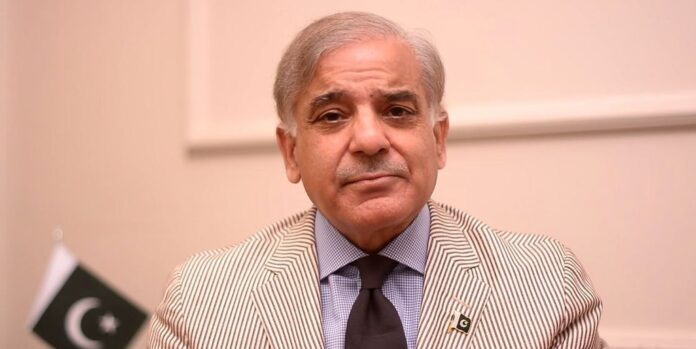Addressing the One Water Summit, Pakistan’s Prime Minister stresses the urgency of political will and international cooperation to address escalating water challenges
Prime Minister Shehbaz Sharif has called for strong global leadership and political will to tackle the growing water crisis, which he warned poses an existential threat to nations worldwide. Speaking at the One Water Summit in Riyadh, Saudi Arabia, on December 3, 2024, Sharif emphasised that water, as the lifeblood of the planet, is critical not only to economic development but also to food security and environmental sustainability. He highlighted the alarming rates at which water resources are depleting, with nearly half of the global population experiencing water scarcity for part of the year and billions without access to clean drinking water due to pollution.
Sharif’s remarks came during the United Nations Convention to Combat Desertification, where the summit focused on the theme “Restore, Preserve, and Adapt.” The summit, which was organised by Saudi Arabia, France, Kazakhstan, and the World Bank, aims to address one of the most urgent challenges facing humanity today—water security. Sharif arrived in Riyadh for a two-day visit to participate in the event and highlight Pakistan’s own vulnerabilities to water crises.
The prime minister painted a stark picture of the global water situation, noting that water resources are fast depleting and are increasingly threatened by pollution, climate change, and unsustainable use. “This life-sustaining resource, however, is coming under increasing stress,” Sharif said, underlining the need for urgent global action. He pointed to the devastating consequences of water scarcity, including displacement of millions and destruction of ecosystems, which are compounded by rising temperatures and extreme weather events.
Pakistan, Sharif noted, is no stranger to the challenges of water scarcity. The country has been grappling with severe flooding, particularly from the catastrophic 2022 floods, which wreaked havoc on Pakistan’s water infrastructure and irrigation systems, displacing millions and causing widespread damage to the economy. At the same time, Pakistan is facing the persistent threat of drought, with nearly 70% of the country consisting of arid and semi-arid land. Around 30% of the population lives in drought-prone areas, with projections showing that Pakistan’s temperature rise will be significantly higher than the global average.
Embed from Getty ImagesSharif used his platform to highlight Pakistan’s commitment to addressing these challenges, referencing the country’s ongoing efforts to manage water resources more effectively. He praised the country’s ‘Recharge Pakistan’ initiative, designed to mitigate flood risks and address drought impacts through ecosystem-based adaptations. The prime minister also mentioned the development of Pakistan’s ‘National Drought Plan,’ which aims to identify the most drought-affected regions and establish mechanisms to combat the effects of drought.
In addition to focusing on Pakistan’s challenges, Sharif highlighted the importance of transboundary water management. He pointed out that water does not recognise political boundaries and stressed the need for international cooperation to manage shared water resources. The Indus Water Treaty, which governs the distribution of water in the Indus Basin, is a prime example of such cooperation, though it has faced unprecedented challenges in recent years due to factors such as the construction of upstream dams. Sharif emphasised that the treaty’s effective functioning is critical not only for managing water resources but also for maintaining regional peace and stability.
The prime minister also laid out a comprehensive six-point agenda for global action to address the water crisis. His proposals included enhancing international cooperation to ensure sustainable water and sanitation for all, sharing knowledge and expertise in water management, securing funding for climate-resilient infrastructure, creating frameworks for transparency and regional cooperation to avoid conflicts, investing in skills development and research, and most importantly, fostering strong political will and leadership at the global level.
Sharif commended Saudi Crown Prince Mohammad bin Salman for his leadership in establishing the Global Water Organisation, a key initiative aimed at addressing water challenges globally. Pakistan is a founding member of the organisation, and Sharif expressed the country’s commitment to supporting its goals.
Reflecting on the significance of water, Sharif shared a personal memory from his childhood in Lahore, where he recalled playing by the rivers and seeing local fishermen at work along the Ravi River. “These cherished memories serve as a poignant reminder of what is at stake,” Sharif said. “As leaders, policymakers, and custodians of the future, it is our duty to ensure that these rivers, lakes, and aquifers that have nourished civilisations for centuries must not be reduced to tales of the past.”
After his speech, Sharif met with Saudi Crown Prince Mohammad bin Salman to reaffirm the strong relationship between Pakistan and Saudi Arabia. The two leaders discussed ways to further enhance bilateral cooperation, particularly in the fields of trade and investment. Sharif expressed optimism about the future of the Pakistan-Saudi partnership, noting that frequent high-level exchanges were laying the foundation for mutually beneficial economic cooperation between the two nations.
